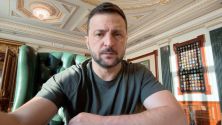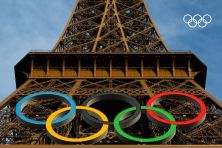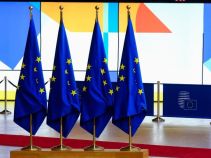Russian propaganda has been working in the West for a long time. However, after the start of a full-scale war against Ukraine, many countries took measures to limit Russian information resources. However, Russia is adapting by intensifying anti-Ukrainian rhetoric, especially in light of the upcoming elections in the United States and the European Union. Political scientist Volodymyr Fesenko spoke about this on the FREEDOM TV channel.
“Russian propaganda has been working systematically in Western countries for a long time. But before the full-scale invasion of Ukraine, a different toolkit was used, I would say, more effective. It was heavy artillery. For example, the Russia Today channel, the Sputnik news agency, as well as federal television channels,” he said.
The political scientist noted that only after the start of a full-scale war in the world was the Russian information presence limited.
“So Russia had to rebuild. And now we are seeing an attempt to use new tools after the broadcasting of propaganda channels in Europe was closed. Thus, Russians create “mirrors” [TV channels] under different names, or new information resources, for example, the resources of Medvedchuk (former people’s deputy Viktor Medvedchuk, accused of treason in Ukraine, – ed.),” says Fesenko.
In addition, according to him, Russia continues to work not only with members of the European Parliament, but also with members of national parliaments.
“The intensification is also due to the fact that Russia is trying to advance at the front, and therefore seeks to intensify the information attack. This, of course, is connected with the US elections, where she is working for Donald Trump’s audience. That’s why there was [dictator Putin’s] interview with Tucker Carlson. In Europe, this is connected, first of all, with the elections to the European Parliament. This is the main reason,” emphasized Fesenko.
Read also: Poland could transfer post-Soviet missiles for air defense systems to Ukraine — Duda
Let us remind you that in Europe there is an increase in Russian disinformation activities, in particular a surge in anti-Ukrainian propaganda. This was stated in an interview with the Financial Times by the head of the department of culture and communication of the German Ministry of Foreign Affairs, Ralf Beste.













